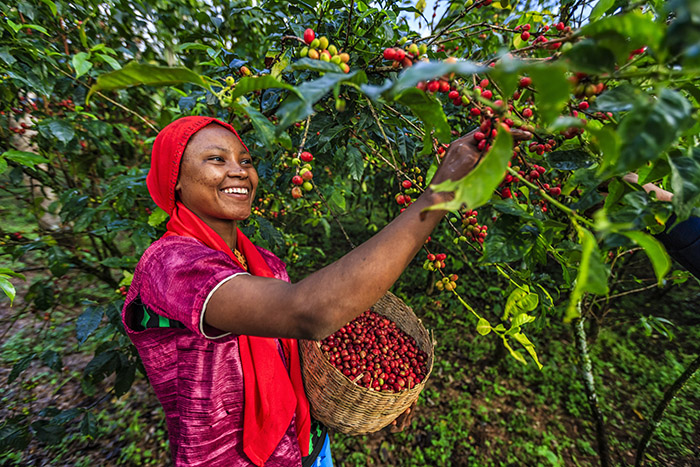Time for action on food and health

The food industry and the health service are at a crossroads in terms of junk food and its effect on health, says Camilla Cavendish. So what should be done?
All the views and opinions expressed in this article are Camilla Cavendish's and do not necessarily reflect the official policy or position of Nestle.
The food industry needs to come together with government, the health service and consumers to tackle obesity, says Camilla Cavendish. "What were occasional treats have now become part of a daily diet. Our diets are no longer balanced. Consumers are confused about what to eat and the industry needs to come together and help resolve the problem. We have to escape the junk food cycle. Consumers need to feel that the food industry has their interests at heart," she says.
Heading up Number 10’s policy unit under David Cameron, Cavendish says the food industry has the opportunity to do the right thing, now that some of the risks around obesity and overnutrition are known.
Taxation and reformulation
As part of the team that helped persuade the government to introduce the Soft Drinks Industry Levy, better known as the sugar tax, in 2016, Cavendish knows what it's like to bring about change.
The tax has raised £301 million for the financial year 2020 to 2021. But more importantly, reformulation of drinks means that, on average, 100mls of sugary drink now contains 28.8% less sugar than in 2015. This works out as more than 30,000 tonnes less sugar - 5 billion fewer calories - being sold in such drinks each year.
And this was always the intention of the tax, Cavendish says: "The levy was never about trying to tax consumers or raise the price of drinks. It was all about nudging industry to remove sugar from its products. And it did that."
The sugar levy sends an important signal to everybody in this space that customers understand. We want companies to protect us from temptation. We're all human. I'd rather be able to go and still buy some things that I like but not have them stuffed with quite so many nasty ingredients and I think it's achieved that.
What's more, Cavendish adds: "Industry didn't take long to remove sugar from those products despite having told us it would take many, many years. It took about two years."
It would be hard to repeat the success of the sugar tax in cakes, biscuits and sweets, because, Cavendish says, these are difficult to reformulate successfully.
Instead, she believes attention should be refocused on further reducing salt levels. "I'm still eating products that are monstrously salty," she says. "It should be easy to take quite a lot of salt out of a whole range of products such as crisps and popcorn."
Salt reduction could be successful - particularly if reformulation happens gradually over time - Camilla Cavendish
"Look at what has happened in Finland, for example, where they had major heart problems and started over 20 years ago to look more deeply at the exercise habits of their populations and encourage people to eat less salt. Japan too, which is, I think, one of the only countries in the world that has improved the healthy life expectancy of its population by a series of public health measures that have worked."
Obesity and inequalities
As a journalist, Cavendish became increasingly interested in the NHS around the time of the government reforms in 2011-12. This focused her attention on obesity and its health-related issues.
"And one of the things that struck me then was how much the NHS was having to spend on obesity and obesity-related diseases." The cost to the NHS is now around £6.1bn, according to the recent UK Food Strategy report.
The issue arose again when she was on the board of the Care Quality Commission which regulates hospitals and GPs. And in more recent times, the coronavirus pandemic has highlighted the additional risks of being overweight, particularly before the vaccine was developed.
But it's not just the health aspects of obesity that concern Cavendish.
"It's almost a social justice issue, particularly with children. If you're overweight as a child and you're growing up in a family where everybody else is overweight, you know your life chances are diminished. And in some places you may die sooner too, partly though food-related issues."
This is why it's vital that nutrition receives attention: "The message I have for the government is very simple: you cannot level up unless you level up health. The parts of the country that the government is most concerned about are where the health inequalities are most stark and where people are aging prematurely."
However, she is disappointed with the government's UK Food Strategy document.
"It was pretty unambitious compared with its stated goals and the Dimbleby blueprint, although there were some good things in it," she says. But she still holds out hope that the health disparities white paper due later this year will contain more of the thinking that Dimbleby had led on and proposed solutions for.
Cavendish has come to the conclusion that intervention is needed reluctantly, and that, while she thinks government needs to have a role, it must be tempered and evidence-based.
"I would much rather that governments did not interfere in family life and tell people how to live their lives," she says. "I just happen to think that we have a public health emergency. The pandemic demonstrated that we have left our populations really vulnerable."
She also thinks it is necessary to create a level-playing field with legislation to avoid businesses who would responsibly abide by any self-regulation rules being undermined by those who don't.
Collaboration and regulation
This is where Cavendish thinks the food industry needs to stand up and be counted – on the right side as part of the solution.
But although many companies are trying to do the right thing, they need a level playing field. And at the moment, "even the good ones are too passive.
"Some supermarkets have made enormous strides, but the industry is never going to regulate itself," she says.
I'm wary of anything that's too bureaucratic. I think the industry needs to be much more constructive and help to frame the kind of regulation that would work.
She would also like to see more local regulation on the number of takeaway outlets, especially close to schools. "Some local authorities have taken action but it is still a huge issue."
The impact of advertising
Cavendish campaigned for the ban on junk food TV advertising aimed at children before the watershed. But advertising is still an issue, on TV and online, and she believes more regulation is needed.
"In the UK, we've always had some restrictions on broadcasting. We've got the HFSS (high fat, salt and sugar) regulations but they don't extend far enough, in my view."
Given changes in Government, and in light of the cost of living crisis, there is now a review into the future of obesity policy in the UK. Some health practitioners are concerned that measures to promote public health could be scrapped.
Drivers of change
Investors, including those in the mainstream, are beginning to push food companies on being much more transparent about the impact of their products.
"They are demanding more disclosure on food in the same way they have done on carbon," says Cavendish.
This has huge implications for the industry, holding out the threat of leaving it with devalued assets if it fails to take action.
Meanwhile, regenerative systems hold out the hope of producing nutritious food in a way that gives back to nature. But there will be trade-offs, Cavendish believes – while people want green fields, biodiversity and more food coming from their own country, but they will also need to eat less meat.
And price is a fundamental issue, again coming back to some form of intervention.
"Take organic food," Cavendish says. "I suspect most people get the concept, but if it's not affordable it's something that you leave it on the shelf because it just seems to be the same thing, but pricier.
"But the way I would frame it is: if you think of regenerative agriculture as putting the health back into the soil then regenerative food industry would be put in the health back into people."
- Nestlé, too is working hard on this. For example, back in 2005 we started removing artificial colouring from our confectionery so that they were made from entirely natural ingredients. We've also introduced wholegrain and fibre into our breakfast cereals and worked on reducing sugar, fat and salt in our products.
- Nestlé have also developed a system based on public health recommendations and consumer science to evaluate the nutritional value of food and beverage products. See more about our Nutritional Profiling System.
- In 2022, Nestlé topped Tortoise Media's Better Food Index of the 30 largest food companies in the UK around key measures of sustainability, affordability and nutrition.








